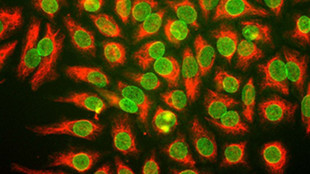A team of European researchers earlier this month published the genome sequence of HeLa cells, the first cells to be grown immortally in culture. They have now taken the sequence down from repositories after hearing from the family of Henrietta Lacks, the woman from whom the cells were taken in 1951.
Rebecca Skloot, author of the 2010 book The Immortal Life of Henrietta Lacks, wrote on The New York Times Opinion pages that the publication was in violation of the family’s privacy, since the cells contain their genetic information.
“The Lacks family is proud of HeLa’s contributions to society, and they don’t want to stop HeLa research,” she wrote. “But they do want to learn about the HeLa genome—how it can be used for the ...




















